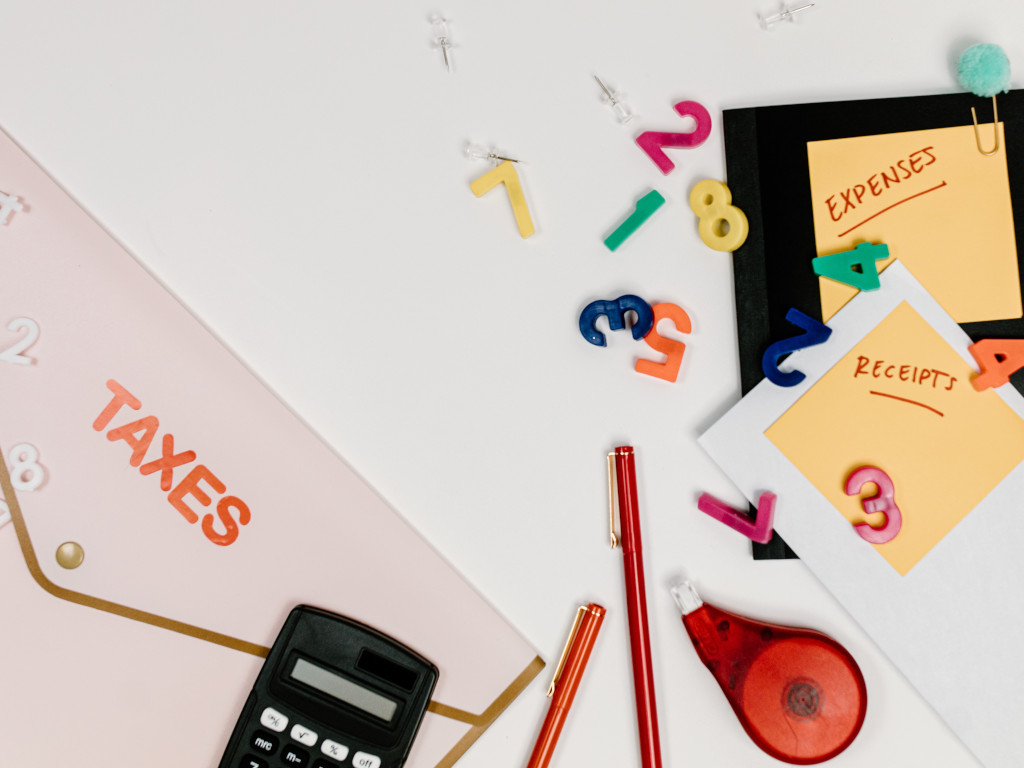SingaporeMotherhood | Parenting
April 2023
Teach Your Kids about Taxes – Why You Should & How to Do It

How well prepared were you to tackle #adulting matters when you started at your first job? For better or worse, most of us muddled through because we never learnt such essential life skills as a student. It’s time to break the cycle! With tax season happening in April, take this chance to introduce your offspring to the importance of taxes.
Zhang Zheying, co-founder of Good School Learning Hub and father of two, explains that while taxes may be a complicated topic, parents can help demystify the subject and make it more relatable. This not only helps strengthen your child’s confidence in their maths skills, but also empowers them to navigate through complex financial systems in the future.
(See also: How EQ can Equip Your Kids for Financial Security)
Not convinced? Neither were we, so we came up with more ‘annoying’ questions regarding teaching our children about taxes, which Zheying patiently addressed.
Why do we need to teach our children about taxes at a young age?
There are two key reasons parents should teach their children about taxes. It boils down to improving financial literacy, as well as inculcating a sense of responsibility. Basically, learning about taxes helps children learn about how money works. As a result, it helps them to understand aspects of managing their personal finances.

On a wider scale, they learn how the government uses taxes to support spending that goes towards developing our country’s infrastructure and funding public services. Relatable examples include the school that the child studies in and the transportation system that gets them there. When children realise how taxes are a necessary part of being a citizen and contributing to society, they can better understand the importance of fulfilling their obligations when they become part of the workforce.
But our parents never taught us, and we turned out fine, right?
It’s true that many adults manage to navigate life without a deep understanding of taxes and personal finance. However, it’s important to recognise that the world is constantly changing and the financial landscape is becoming more complex. By teaching your kids about taxes and personal finance, you can help them grow the knowledge and skills they need to navigate this landscape with confidence.
(See also: Future Skills for Your Preschooler: Why It’s Necessary and How iSTEAM Helps)
So at what age should our kids start learning about taxes?
The best time to start teaching children about taxes is at the upper primary level and onwards. This is when children typically start to understand the value of money and the basics of personal finance. Ultimately, the best approach is to tailor the teaching to the child’s level of understanding and build on their knowledge over time. You can introduce more complex concepts as they become more familiar with the concepts of personal finance.
‘Adulting’ is hard — shouldn’t our kids be enjoying their childhood while they can?
Financial literacy is not something that can be learnt overnight. It takes time to build a strong foundation, so starting early helps ensure that children have the tools they need to succeed in the future. In this way, you can help the next generation alleviate some of the stress that can come with adulthood. Your children will be better equipped to manage their finances and make smart financial decisions!
Kids often learn maths concepts in school but can’t see how it applies to them. How can we make taxes relevant for our children?
Explain the concept of taxes using real-life examples: Start by explaining what taxes are. Then use real life to help your child understand how taxes support the community. Besides obvious examples like schools, roads, and hospitals, there are also less tangible services such as public transport, policemen, and estate cleaners. Other fun examples include our airport with its famous indoor waterfall. Even tourist attractions such as Gardens by the Bay, the Singapore Flyer, and even the HDB flats we live in are only possible because of taxes.
Discuss the benefits of public services: The tax system in Singapore is progressive. This means that those who are wealthy pay more tax, because the government also uses taxes to help the poor. For example, the lower income group enjoy more tax rebates. They also receive more GST vouchers and utility rebates to help them combat inflation and the high cost of living.
(See also: Budget 2023: Bigger Baby Bonus + More Benefits and Subsidies for Parents)
Teach financial responsibility: Teach your children about financial responsibility, including the importance of budgeting, saving, and investing. For example, you can explain that by using less water, they are helping mummy and daddy to save money. Similarly, because taxes fund public services, everyone has a responsibility to contribute and invest in our common future.
Still, my kids are already struggling with maths in school — why give them more stress?
Because financial literacy goes beyond just maths. It involves a range of skills, including critical thinking, problem-solving, and decision-making. By teaching them about taxes and personal finance, you can help reinforce these skills. You’ll be giving your children a head start to not just succeeding in school, but in life. Besides, it doesn’t have to be a boring textbook lesson.
What are some engaging ways to introduce the concept of taxes to children?

- Use real-life examples to explain taxes, such as how taxes pay for things like public sports facilities and neighbourhood parks in Singapore. Refer to things that they have seen and experienced in real life. You can do this while you are taking the bus or train, or while you are driving.
- When dining out, involve your child in choosing their meal from the menu and invite them to ponder prices. After the meal, show them the receipt and let them compare the price of the food to the final bill. Explain the effects of taxes and how it impacts you.
- Role-play with the kids. For example, you can set up a restaurant or a bookstore. Then use the buying and selling process to introduce taxes. You can take turns to be the shop owner, an employee, and the customers.
- When the children are saving up and budgeting for their wants, use those moments to describe how taxes work in similar ways. For example, how our government grows our national reserves for nation-building, and for emergencies such as during the COVID-19 pandemic.
- Watch the news together and discuss! Learn about the latest government initiatives and how they help the nation as a whole. Explain how working parents pay income tax, as well as how you pay utility bills and allocate the spending budget for the whole family.
Are there other resources we can tap on to help our children — and ourselves — learn more about the topic?
- IRAS website – An excellent resource for details about what you need to know about taxes in the Singaporean context.
- YouTube explainer videos – You can search for age-appropriate videos on YouTube, such as the one above. Do note that the tax system in other countries may differ, so parental guidance is advised.
- Personal finance books for kids – There are many books that teach kids about personal finance and money management. Useful titles include Alexander, Who Used to Be Rich Last Sunday and The Kids’ Money Book.
- Educational games – Hasbro’s Monopoly, Monopoly Junior, and the Game of Life board games, for example, can introduce money lessons to kids.
When my kids are old enough, I plan to use analogies such as likening the government to a school principal, and taxes to school fees. Just as a school principal uses school fees to pay for teachers, books, and facilities, the government uses taxes to fund roads, hospitals, and even rubbish disposal!
Zhang Zheying, co-founder of Good School Learning Hub
I’d introduce this as an interactive game where my child plays the role of the school principal, while I am a student’s parent. Each time I pay them the school fees, I’ll ask what the fee is for and how it helps the school. In turn, I could have my child, the principal, pay taxes to me as the government.
I imagine an outcome where my child realises that the money they give to the government is not gone forever. Instead, it goes towards services and infrastructure that benefit them and their community. This activity can help them make the connections between the things they see around them, like parks and schools, and the taxes that fund them.
P.S. Tomorrow, 18 April, is the last day to e-file your taxes, so hop to it if you haven’t already!
All content from this article, including images, cannot be reproduced without credits or written permission from SingaporeMotherhood.
Follow us on Facebook, Instagram, and Telegram for the latest article and promotion updates.





